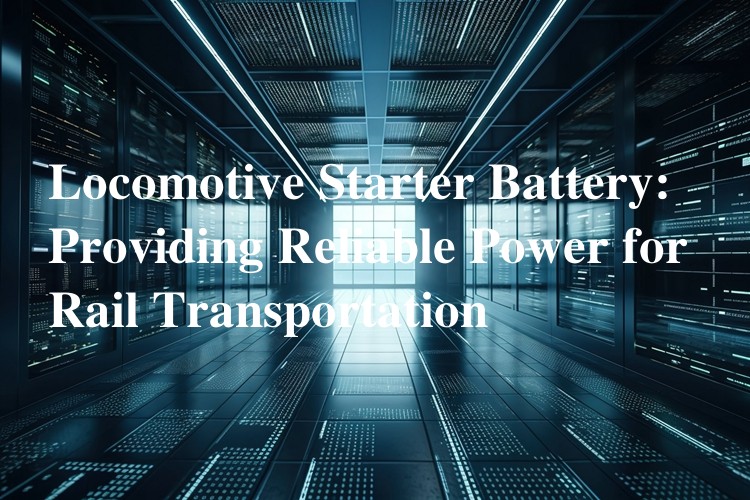Buy Deep Cycle vs Starting Battery: Understanding the Differences
When it comes to batteries, there are two main types that are commonly used in various applications – deep cycle batteries and starting batteries. While they may appear similar, these batteries have different designs and are designed to serve different purposes. Understanding the differences between the two is crucial for making the right choice for your specific needs. In this article, we will explore these differences in depth.
Firstly, let’s delve into the deep cycle battery. As the name suggests, this type of battery is designed to provide a consistent and steady amount of power over an extended period of time. Deep cycle batteries are commonly found in recreational vehicles (RVs), boats, golf carts, and off-grid solar systems, among other applications. They are built with thick and durable plates that allow for repeated deep discharges without causing damage to the battery.
Deep cycle batteries are known for their ability to deliver power at a slow and steady rate. This is in contrast to starting batteries, which are specifically designed to provide short and powerful bursts of energy to start an engine. Starting batteries are commonly used in automobiles, motorcycles, and other vehicles with internal combustion engines. They are built with thinner plates that offer a large surface area, enabling rapid discharge for a short period of time.
Another important difference between deep cycle and starting batteries lies in their capacity. Deep cycle batteries are designed to have a high storage capacity, allowing them to provide a continuous power supply over extended periods. Starting batteries, on the other hand, have a lower capacity but are optimized to deliver a high amount of power in a short span of time.
One key factor to consider when choosing between a deep cycle and starting battery is the way they handle discharge cycles. Deep cycle batteries can handle deep discharges and subsequent recharges without significant loss of performance. They are designed to endure such cycles repeatedly. In contrast, starting batteries are not designed to withstand deep discharges. Frequent deep discharges can cause irreversible damage to the battery and shorten its lifespan.
In terms of construction, deep cycle batteries often use a thicker and heavier design to withstand the rigorous demands of continuous use. They are built with robust materials that can withstand vibrations and high temperatures. Starting batteries, on the other hand, prioritize lightweight construction for easy portability and are typically encased in a plastic housing.

It is worth noting that while deep cycle batteries can be used for starting applications, they may not provide the same level of performance as a dedicated starting battery. Deep cycle batteries are designed to deliver power over a longer period and may struggle to deliver the high current needed to start an engine.
In summary, deep cycle and starting batteries differ in their design, purpose, and performance characteristics. Deep cycle batteries are built to provide a steady and consistent power supply over an extended period, making them suitable for applications such as RVs and solar systems. Starting batteries, on the other hand, are optimized for short bursts of high power and are commonly used in vehicles with internal combustion engines. Understanding these differences will help you make an informed decision when choosing a battery for your specific needs.
-
 Introduction Rail transportation is one of the most reliable and efficient means of transportation in the world. Its popularity and widespread use can be attributed to its ability to transport heavy loads over long distances with minimal environmental impact. The primary source of power for locomotives is electricity, which is stored in batteries. Locomotive starter batteries are an essential component...En savoir plus
Introduction Rail transportation is one of the most reliable and efficient means of transportation in the world. Its popularity and widespread use can be attributed to its ability to transport heavy loads over long distances with minimal environmental impact. The primary source of power for locomotives is electricity, which is stored in batteries. Locomotive starter batteries are an essential component...En savoir plus -
 Introduction: In recent years, there has been a growing demand for efficient and durable power solutions to meet the increasing energy needs of various sectors. One such solution that has been gaining popularity is the 12V 100Ah LiFePO4 Lithium Iron Phosphate battery. This article aims to explore the features, benefits, and applications of this advanced battery technology. Features and...En savoir plus
Introduction: In recent years, there has been a growing demand for efficient and durable power solutions to meet the increasing energy needs of various sectors. One such solution that has been gaining popularity is the 12V 100Ah LiFePO4 Lithium Iron Phosphate battery. This article aims to explore the features, benefits, and applications of this advanced battery technology. Features and...En savoir plus -
 Lithium batteries have become increasingly popular over the years due to their high energy density and long cycle life. They are now commonly used in various applications such as electric vehicles, portable electronics, and renewable energy systems. In some cases, it may be necessary to connect multiple lithium batteries in series to achieve the desired voltage level. However, there are...En savoir plus
Lithium batteries have become increasingly popular over the years due to their high energy density and long cycle life. They are now commonly used in various applications such as electric vehicles, portable electronics, and renewable energy systems. In some cases, it may be necessary to connect multiple lithium batteries in series to achieve the desired voltage level. However, there are...En savoir plus -
 In today's fast-paced world, where technology plays a pivotal role in our daily lives, the demand for efficient and reliable power solutions has never been higher. Industrial power products batteries have emerged as a game-changer in meeting these power requirements, offering a wide range of applications across various industries. From powering heavy machinery to providing backup power during emergencies, these...En savoir plus
In today's fast-paced world, where technology plays a pivotal role in our daily lives, the demand for efficient and reliable power solutions has never been higher. Industrial power products batteries have emerged as a game-changer in meeting these power requirements, offering a wide range of applications across various industries. From powering heavy machinery to providing backup power during emergencies, these...En savoir plus -
 Electric scooters have become increasingly popular as a convenient and eco-friendly mode of transportation in recent years. One of the key factors contributing to their success is the advancements in electric scooter battery technology. In this article, we will explore the latest developments in this field that have improved the performance and range of electric scooters. The primary component...En savoir plus
Electric scooters have become increasingly popular as a convenient and eco-friendly mode of transportation in recent years. One of the key factors contributing to their success is the advancements in electric scooter battery technology. In this article, we will explore the latest developments in this field that have improved the performance and range of electric scooters. The primary component...En savoir plus -
 The importance of having a reliable battery charger for your vehicle cannot be overstated. Whether you are using your vehicle for personal or commercial purposes, a dead battery can cause significant inconvenience and even financial loss. That is why you need an efficient and reliable onboard battery charger like the 24V onboard battery charger to ensure that your vehicle's battery...En savoir plus
The importance of having a reliable battery charger for your vehicle cannot be overstated. Whether you are using your vehicle for personal or commercial purposes, a dead battery can cause significant inconvenience and even financial loss. That is why you need an efficient and reliable onboard battery charger like the 24V onboard battery charger to ensure that your vehicle's battery...En savoir plus -
 Introduction: In recent years, the demand for seamless and uninterrupted communication networks has surged, especially with the increasing reliance on mobile devices and the internet. However, ensuring reliable network coverage in remote areas or during power outages remains a challenge. In response, the implementation of lithium battery-powered base stations has emerged as a viable solution. This article delves into the...En savoir plus
Introduction: In recent years, the demand for seamless and uninterrupted communication networks has surged, especially with the increasing reliance on mobile devices and the internet. However, ensuring reliable network coverage in remote areas or during power outages remains a challenge. In response, the implementation of lithium battery-powered base stations has emerged as a viable solution. This article delves into the...En savoir plus

